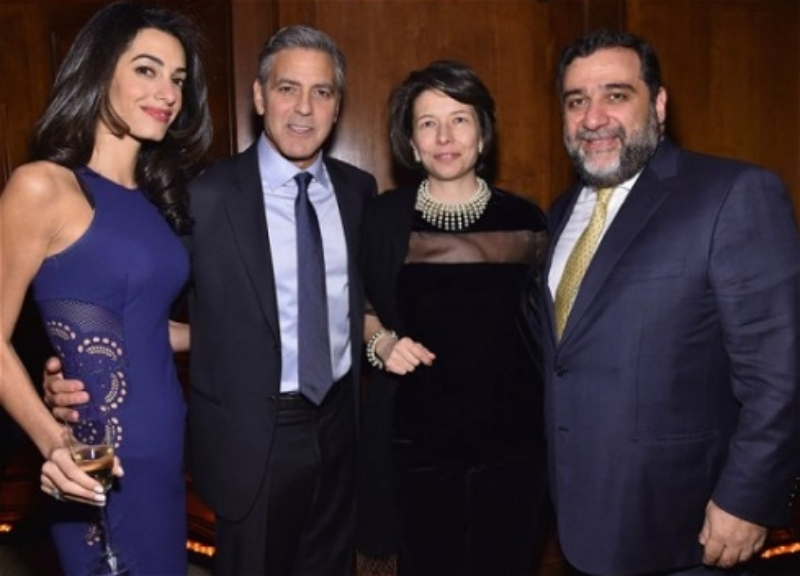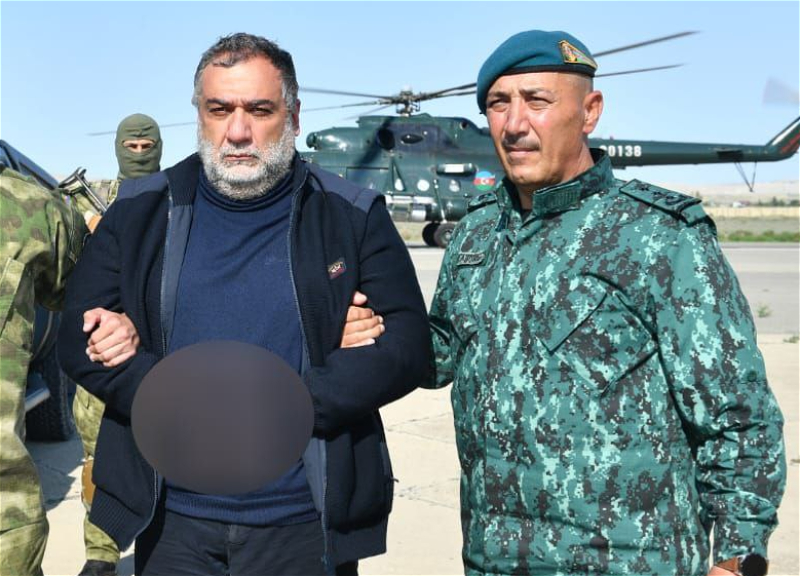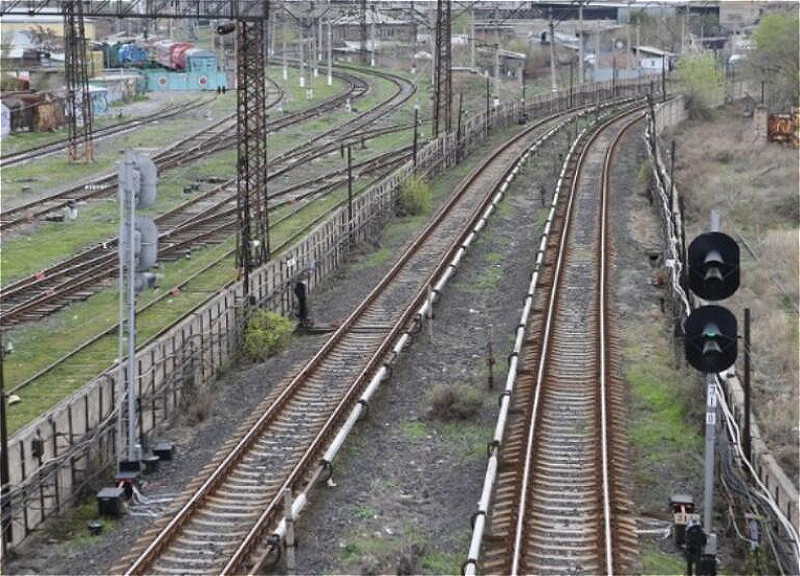Emin Milli: In Fact, Armenia and Azerbaijan Have Shared Interests

Interview with Emin Milli, founder and head of Restart Initiative.
– How would you briefly define the mission of Restart Initiative?
– We create and develop political, economic, trade, and cultural ties between Germany, the European Union, and the South Caucasus and Central Asia.
– And how exactly do you build bridges between Germany and Europe on the one hand, and Uzbekistan as well as other Central Asian countries on the other?
– In February this year, at the Munich Security Conference, we organized the only event dedicated to the geopolitics of the Caspian region. Our speaker was Mr. Eldor Aripov, head of the Center for Strategic and Interregional Studies under the President of Uzbekistan. In July, in cooperation with the Embassy of Uzbekistan in Germany, we held a Uzbekistan-Germany business forum.
We also recently launched a new political club in Germany called the Middle Corridor Club.
– Why did you establish the Middle Corridor Club in Germany? What are its goals?
– The Middle Corridor Club is a political club connecting Germany and the European Union with the countries of our region, namely the South Caucasus and Central Asia. We want to create a forum where the shared interests of Germany, the EU, and the countries along the Middle Corridor can be discussed. These include Azerbaijan, Kazakhstan, Uzbekistan, Kyrgyzstan, and Turkmenistan.
We invite leading politicians, journalists, business leaders, and experts from Germany, the EU, and our region to explore how the corridor can be expanded, how ties can be deepened not only in economic, transport, and logistics spheres, but also in tourism, cultural exchange, and broader political interests that emerge alongside this infrastructure.
.jpg)
– What was your first project, and why did you start with it?
– Our first project was launched after the Second Karabakh War. At the time, my co-founder was Janine Mitchell. We sat down and asked ourselves what we could do that would be useful for our region—the South Caucasus.
We realized that while dialogue between Armenia and Azerbaijan was clearly necessary, what had been missing for over 30 years was comprehensive dialogue on economic issues. So, we decided to initiate a series of discussions between Armenian and Azerbaijani experts on how life would look after a peace agreement was signed.
We organized a series of economic and political dialogues covering various issues such as transport, water management, and energy. For example, when water management experts from Armenia and Azerbaijan came together, it was the first time they had met in 30 years.
And we discovered that Armenia and Azerbaijan indeed have, and could have, shared interests—provided a peace treaty is signed. For instance, we explored how joint water management could be organized, or how cooperation in the energy sector could cut energy prices in Armenia by half if it bought oil and gas from Azerbaijan instead of Russia. These kinds of practical ideas and projects emerged throughout the dialogues.
We organized all this in partnership with our German colleagues—the Hertie School, a private university in Berlin, and the CANDID Foundation.
– What was your key goal in organizing these dialogues between Armenian and Azerbaijani experts, including events in the Bundestag and the French Ministry of Foreign Affairs?
– Yes, as you noted, together with our German partners we organized two events in the German parliament and one at the French Foreign Ministry in Paris.
From the outset, we emphasized—and this was understood—that we are not a lobbying organization. For us, it is essential not to hold propaganda events but to create a genuine atmosphere where both Armenian and Azerbaijani experts can present their perspectives.
Our primary goal was to establish an economic and political dialogue between Armenian and Azerbaijani expert communities. A secondary goal was to include German politicians, journalists, and experts in these discussions. Too often, I noticed that Azerbaijani voices were absent in German media and at international events: either Azerbaijanis were not invited, or there was a disproportionate presence of Armenian representatives, and European experts tended to echo only one narrative.
This, I believe, undermines Europe’s ability to support the Armenia-Azerbaijan peace process. We saw this problem clearly during the German president’s visit to Armenia and Azerbaijan, when his Instagram page suddenly featured the flag of “Artsakh” (editor’s note: an unrecognized, illegal entity known as the so-called “Nagorno-Karabakh Republic”).
I told my German colleagues: imagine if the President of Azerbaijan came to Germany and posted a Nazi swastika in his Instagram stories.
To prevent such missteps, one of our goals is to inform German politicians, journalists, and experts not only about Azerbaijan’s position, but also about joint Armenian-Azerbaijani perspectives on the region and on possible solutions.
It is also important to explain that some narratives are not truly Armenian or pro-Armenian, but rather those of radical groups within the Armenian diaspora. These narratives are often harmful not only to Azerbaijan but also to Armenia itself, to the peace process, and even to German and EU interests in the region. These sensitive issues are precisely what we try to discuss with Armenian experts, German experts, politicians, and journalists. In doing so, we contribute to improving relations between Germany, the EU, and our region.
– Who funds Restart Initiative, and does this affect the topics and formats of your projects?
– So far, all the dialogues and events I mentioned have been funded by the European Union, as well as the governments of the United States, Germany, and the United Kingdom. This does not dictate the themes of our projects—we choose the topics first and then apply for funding. Both the EU and the German government have supported these projects for years.
On the political level, our activities are also supported by the governments of both Azerbaijan and Armenia. We receive no financial assistance from them, but their political support is sufficient.
– How would you describe Azerbaijan’s current image among European policymakers and experts?
– I would say Azerbaijan’s role and influence have been changing and growing so rapidly—especially in recent months—that some experts, journalists, and politicians struggle to keep up.
This is also where I see Restart Initiative’s mission: to explain to German and European audiences how the region is changing, and conversely, to inform Azerbaijani, Armenian, and Central Asian audiences about Europe’s changes and what they mean for our countries.
For example, Germany has allocated one trillion euros to strengthen its military and modernize its infrastructure. This means billions of dollars will be invested in Germany’s armed forces, making it Europe’s strongest military power. A decade ago, such an idea would have been inconceivable. Today it is fact.
Berlin is becoming not only a leading political power in Europe but also a leading military one. This makes our work in Germany all the more relevant. These “winds of change” are what I also try to convey to our Azerbaijani, Armenian, Kazakh, and Uzbek partners.
It is a two-way process: we need to understand developments in these countries and improve dialogue between them.
– You took part in the Shusha Media Forum. What impression did it leave on you, and how do such events influence Azerbaijan’s international engagement?
– Never in Azerbaijan’s history has it happened that the President of Azerbaijan makes a statement and the President of the United States shares it publicly on his social media.
I remember in the 1990s and later, we always complained about an “information blockade.” After the third global media forum in Shusha, we can say with confidence that this blockade has ended. Azerbaijan’s communication now operates on a completely new level.
Azerbaijan is becoming a case study of how to move from an information blockade to global visibility. Today, Azerbaijan is regularly featured in international media headlines. For me, this demonstrates the country’s growing influence not only regionally but globally.
– How do you see the prospects and main challenges in relations between Germany and Azerbaijan?
– The biggest problem, in my view, is that Germany’s ambassador and policymakers dealing with our region need to reflect on what went wrong in German foreign policy that nearly derailed the German president’s first official visit to Azerbaijan. As you know, when the president was in Yerevan to promote peace between Armenia and Azerbaijan, his Instagram page featured the “Artsakh” flag (editor’s note: an unrecognized, illegal entity known as the so-called “Nagorno-Karabakh Republic”).
My German friends argued this was a mistake or an accident. I disagreed. Based on my own experience with German institutions and foundations, I believe it was symptomatic of deeper issues within Germany’s political machinery regarding our region.
We had organized two events in the Bundestag. At our last one, the Armenian and Azerbaijani ambassadors attended, along with the head of the Bundestag’s foreign affairs committee, other MPs, journalists, and experts. I personally invited the leader of the Green Party, who did not attend but sent an intern of Armenian origin instead.
I respect Armenians and have many Armenian friends. For years I have organized events in Europe bringing together Armenians and Azerbaijanis. But when decisions like this appear systematic, they seem more like political statements.
Another example: the German Council on Foreign Relations (DGAP). When I suggested co-hosting an event on Armenia and Azerbaijan, they declined. Months later, they held an event solely on Armenian cultural heritage in Karabakh, featuring Armenian speakers and diaspora representatives. This was clearly a propaganda exercise, not an open discussion.
As both a German and Azerbaijani citizen, I find this troubling. German taxpayers fund such events, yet they do not serve German interests, nor do they help build constructive relations with Azerbaijan. Instead, they cater to radical elements of the Armenian diaspora disconnected from the real challenges facing Armenians in Armenia or those who may wish to live in Azerbaijan in the future.
This is not the way for Germany to build the right relations with Azerbaijan or the region. That is why, as a dual citizen, I intend to raise these issues in Berlin, Baku, Yerevan, and across Europe. These problems can, in fact, be solved quite easily.
– In Azerbaijan, the Bundestag is often seen as pro-Armenian. Do you share this view, and what factors shape it? What steps are being taken to change it?
– Again, we are not a lobbying organization. I don’t even know if Azerbaijan has one in Berlin. I don’t believe the German political establishment is uniformly “pro-Armenian.” There are different politicians and institutions.
For example, we work with the Hertie School—a private Berlin university often described as a mini-Harvard. Its international institute was headed by Wolfgang Ischinger, longtime chair of the Munich Security Conference. This is one of Germany’s most influential institutions. Together, we have carried out valuable work benefiting Armenia, Azerbaijan, Germany, and Europe, which is why it continues to be funded by the EU and Germany.
We also cooperate with the CANDID Foundation. At our Bundestag events, German MPs welcomed participants. Our approach is to look at these issues from the perspectives of Germany, Azerbaijan, the EU, and the broader region—not from the narrow view of one country or diaspora group.
By contrast, when the DGAP holds a panel with only Armenian speakers on the Armenia-Azerbaijan conflict, that is propaganda. I have not spoken about this publicly before—you are one of the first media outlets I tell this to. But there comes a time when such patterns must be called out.
We see similar tendencies with the Heinrich Böll Foundation, which is close to the Green Party. They consistently invite only Azerbaijani opposition figures. I have nothing against the opposition, but it is always the same people, the same narratives. A responsible foundation funded by German taxpayers should serve Germany’s interests, not undermine its relations with Azerbaijan.
These are the kinds of questions we raise in our discussions and events. I say this not to offend anyone, but because as a citizen of both Germany and Azerbaijan, I care deeply about resolving such issues.
– What has Restart Initiative achieved in recent years for Armenian-Azerbaijani dialogue, and how do you assess the real impact?
– Together with the Hertie School, we organized eight dialogues bringing Armenian and Azerbaijani experts together, primarily to discuss economic cooperation.
We held these meetings in Berlin, Georgia, and elsewhere, covering topics such as transport. For example, before the historic White House meeting, Armenian and Azerbaijani experts had already discussed possible railway and road projects. In energy too, we explored potential cooperation and agreements to be signed once a peace deal is reached.
The recent initialing of a peace agreement shows how close we are. Our work has been slow and painstaking, building bridges between Armenian and Azerbaijani societies, experts, and policymakers. The effects are not immediate, but ideas have entered the discussion and specific recommendations have been published on our website and the Hertie School’s site.
We will hold more events this year and plan to update our recommendations to the Armenian and Azerbaijani governments by early next year.
– Armenia’s constitution still contains clauses asserting territorial claims against Azerbaijan. Do you discuss this with Armenian experts, and how do they respond?
– No. This issue is addressed at the highest level between the President of Azerbaijan and Armenia’s Prime Minister. It will also be decided through a referendum in Armenia. Our focus is on finding shared interests in technical areas such as economic, transport, and energy cooperation, which offer huge potential. Constitutional change in Armenia will come in due course.
– You recently launched a new podcast, INDI. Could you tell us about it?
– Yes, together with Roman Orkodashvili, I co-host a new podcast called INDI. We have already recorded three episodes with Gela Vasadze, Erkin Gadirli, and Tofiq Zulfugarov, where we discussed political processes in the region.
– Thank you very much for the interview.
– Thank you.
Interview by Faiga Mamedova








